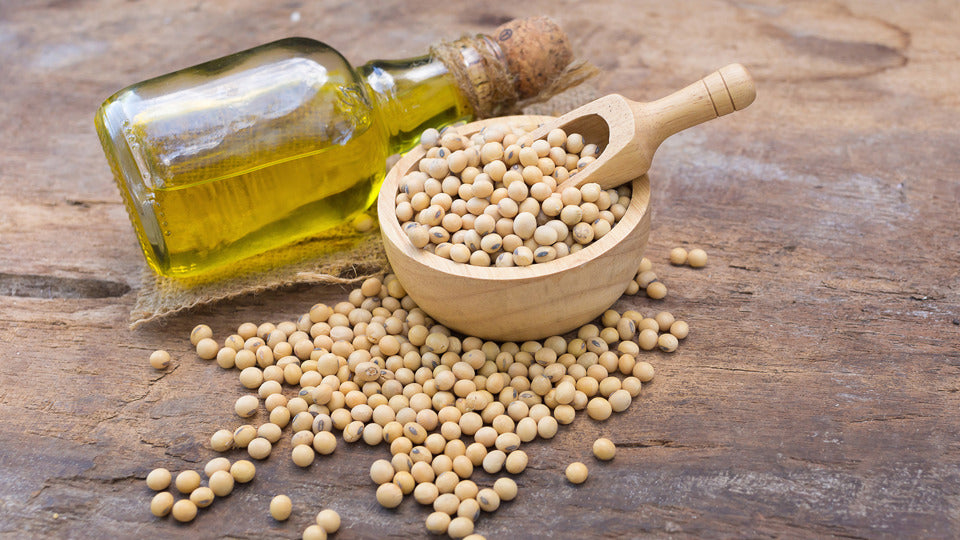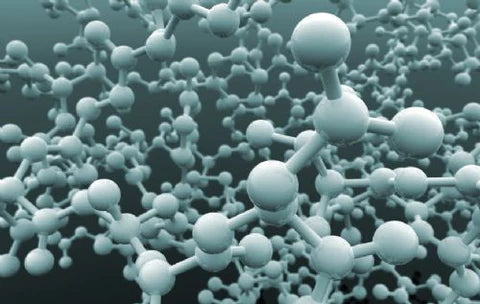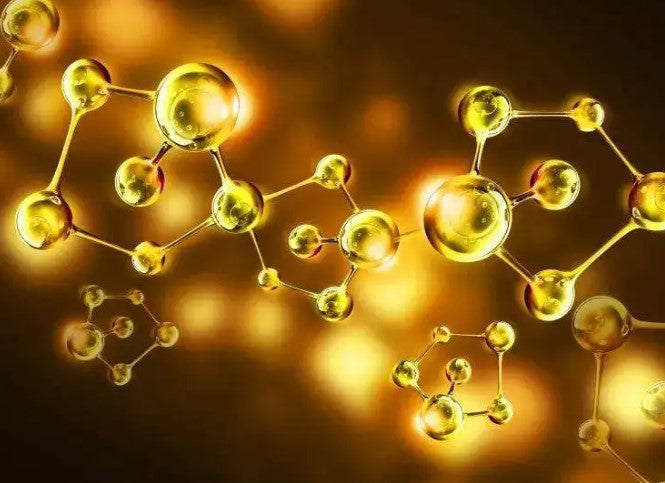
Lecithin and How It Helps with Acne
What is Lecithin?
Lecithin is a fatty substance that contains a mixture of phospholipids, glycolipids, and triglycerides. It is naturally found in various plant and animal tissues and is often extracted from sources such as soybeans, sunflower seeds, and egg yolks for various commercial purposes.
Lecithin's role in cosmetics and skincare is multifaceted, making it a valuable ingredient in a wide range of beauty products.
Here are some key ways in which lecithin benefits cosmetics and skincare:
- Emollient Properties: Lecithin serves as an excellent emollient, which means it can soften and moisturize the skin. It forms a protective barrier on the skin's surface, preventing moisture loss and enhancing the skin's overall hydration. As a result, it helps maintain the skin's suppleness and promotes a smoother, more radiant complexion.
- Hydration: Lecithin has natural humectant properties, which means it can attract and hold moisture from the environment, helping to keep the skin well-hydrated. This is particularly beneficial for individuals with dry skin, as it aids in preventing flakiness and roughness.
- Improvement of Skin Texture: Lecithin can enhance the texture of skincare products, making them smoother and more spreadable. When applied topically, it can create a silky, luxurious feel on the skin, making the application of cosmetics and skincare products more enjoyable.
- Enhanced Product Absorption: Lecithin acts as a surfactant, which means it can improve the dispersion of ingredients in cosmetic formulations. This aids in the even application of skincare products and can enhance the absorption of beneficial ingredients, such as antioxidants or vitamins, into the skin.
- Mild and Gentle Formulation: Lecithin is considered a gentle and well-tolerated ingredient, making it suitable for a wide range of skin types, including sensitive skin. It is less likely to cause skin irritation or adverse reactions.
- Skin Barrier Support: Lecithin contributes to strengthening the skin's natural barrier function. A healthy skin barrier is essential for protecting the skin from environmental stressors, such as pollution and UV radiation.
Due to its versatility and ability to enhance product performance, lecithin is commonly found in a wide array of skincare and cosmetic products, including moisturizers, serums, cleansers, makeup, and more. Its ability to support skin hydration, improve product texture, and aid in ingredient absorption makes it a popular choice for formulators and a valuable addition to any skincare regimen.
How Lecithin help with acne
Lecithin is a replenishing ingredient that improves skin’s moisture retention and skin softness. Its key components include phospholipids, fatty acids, and triglycerides that help restore the skin.
It can contribute to overall skin health, which has some benefits for acne-prone skin:
- Moisturization: Lecithin acts as an emollient, helping to soften and moisturize the skin. Well-hydrated skin is less likely to experience excessive dryness, which can be a contributing factor to acne.
- Skin Barrier Support: Lecithin helps strengthen the skin's natural barrier function. A healthy skin barrier is crucial for protecting against external irritants and maintaining overall skin health.
- Reduced Irritation: Some individuals with acne-prone skin may experience dryness or irritation from acne treatments. Lecithin's emollient properties can help soothe and calm the skin, potentially reducing irritation.
- Compatibility with Other Ingredients: Lecithin is compatible with many other skincare ingredients, allowing it to be included in formulations alongside acne-fighting actives like salicylic acid or benzoyl peroxide.
- Gentle Formulation: Lecithin is generally considered a gentle and well-tolerated ingredient, making it suitable for various skin types, including sensitive skin.






